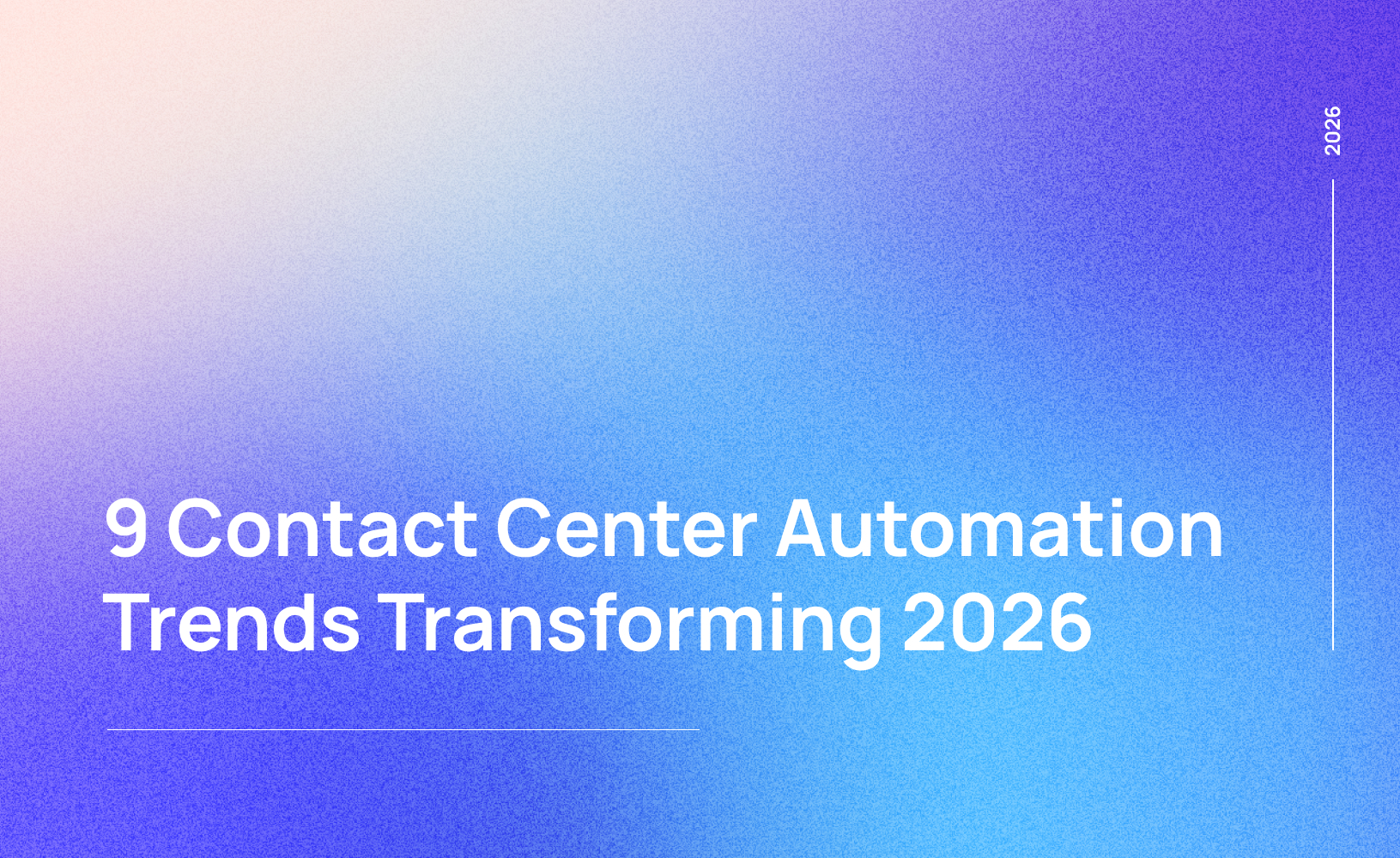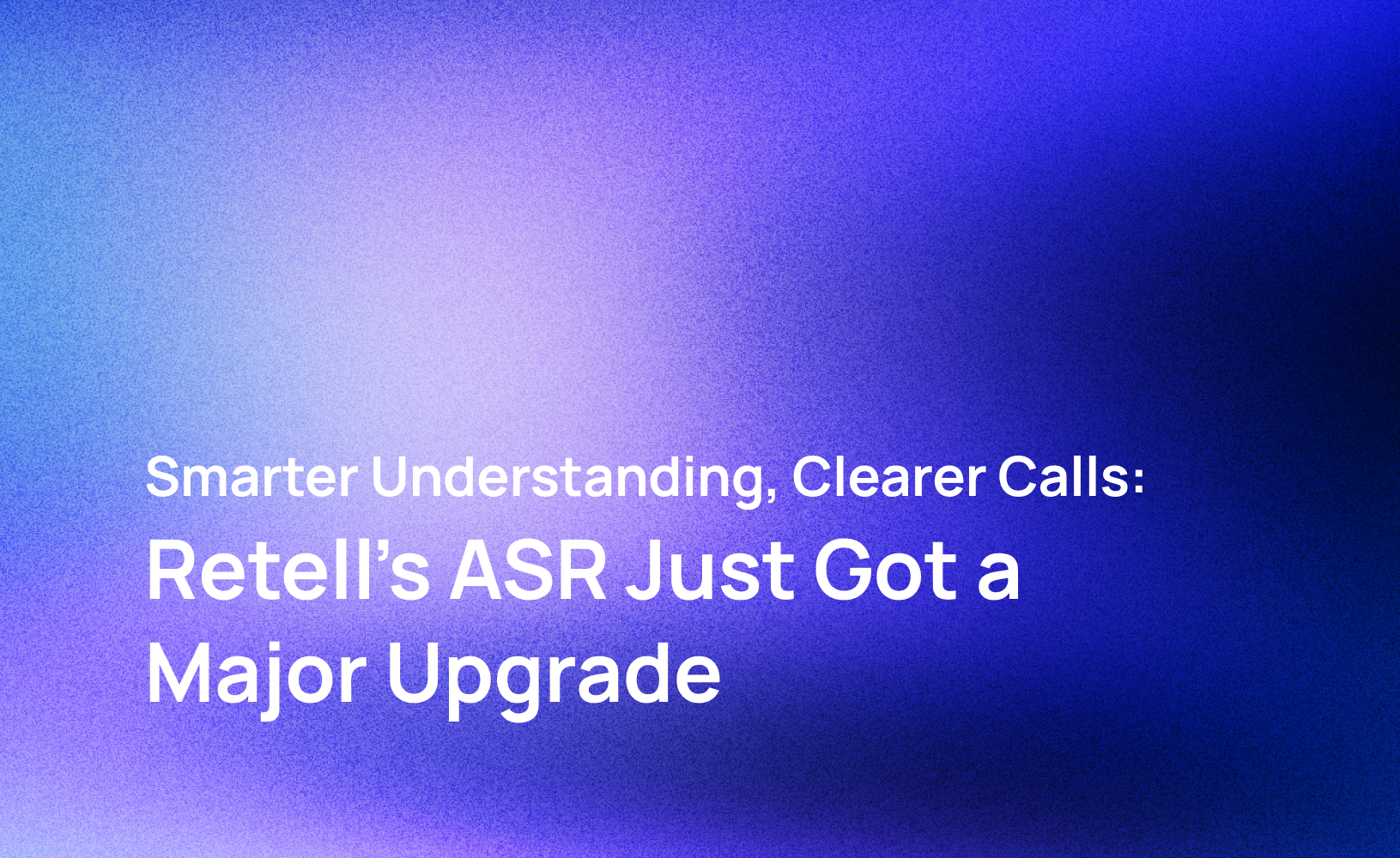Voice AI agent platforms are transforming customer service and operational efficiency in ways that were once unimaginable. With a projected market growth rate of 22.7% CAGR, the global AI market, including voice agents, is expected to reach $126 billion by 2025, indicating the substantial demand and trust businesses are placing in AI-driven customer interactions.
These platforms allow enterprises to streamline repetitive tasks, improve customer satisfaction, and increase availability, offering a scalable and consistent solution that human teams often find challenging to maintain. In fact, reports show that companies adopting voice AI agents have seen up to a 40% reduction in operational costs while handling 90% of customer queries without human intervention.
For businesses aiming to improve customer experiences, it’s critical to choose the right AI voice agent platform. This article explores five top platforms—Retell AI, Synthflow, Bland, Vapi, and Play AI—detailing their standout features, advantages, and ideal applications to help enterprise leaders select the best solution for their needs.
What Are Voice AI Agent Platforms?
Voice AI agent platforms represent a significant leap in automated customer interaction, utilizing artificial intelligence, machine learning, and large language models to provide realistic, human-like voice responses.
These platforms enable companies to automate repetitive tasks like answering customer inquiries, guiding users through frequently asked questions, scheduling appointments, and processing transactions. They work by interpreting spoken language, analyzing intent, and responding with pre-trained or dynamically generated responses, creating a seamless, conversational experience for customers.
How Voice AI Agents Work
Voice AI agents operate on several integrated technologies that together provide a seamless and human-like conversational experience. These include automatic speech recognition, text-to-speech conversion, machine learning models, and large language models (LLMs).
Speech Recognition
Using automatic speech recognition (ASR) technology, voice AI agents capture spoken language and convert it into text that AI systems can interpret. ASR relies on deep learning models trained on extensive datasets of human speech, allowing the technology to recognize a wide array of accents, dialects, and speaking speeds. This process is highly advanced, with many platforms achieving accuracy rates of over 90%, essential for understanding diverse customer inputs.
Large Language Models (LLMs)
LLMs such as OpenAI’s GPT or Claude’s Sonnet form the backbone of natural language understanding within many voice AI systems. These models, trained on vast amounts of text data, can interpret complex language patterns and context, allowing agents to provide nuanced responses that feel genuinely conversational. LLMs add a layer of contextual comprehension, enabling agents to handle more intricate, multi-turn conversations and respond with greater depth.
Text-to-Speech (TTS)
After processing the input, the system uses TTS technology to convert the response text back into spoken words. TTS relies on neural networks and deep learning to create lifelike, human-sounding voices that can be adjusted to match specific tones or brand personas. Some TTS systems even allow customization to reflect regional accents or preferred speaking styles, enhancing customer engagement and making interactions more authentic.
Applications of Voice AI Agents
Voice AI agents have applications across numerous industries, proving especially beneficial in high-demand sectors:
- Customer Support: AI agents can handle up to 80-90% of routine inquiries without human intervention, significantly reducing customer service team workloads.
- Lead Qualification: For sales teams, AI voice agents can gather basic information from callers, determine interest levels, and route high-potential leads to human agents.
- Virtual Receptionists: In industries such as healthcare and hospitality, virtual receptionists can answer frequently asked questions, schedule appointments, and handle basic customer interactions.
- Inbound and Outbound Support: Voice AI agents excel in handling both incoming and outgoing calls, such as customer follow-ups, appointment reminders, or promotional calls, freeing up human resources for more complex interactions.
Benefits of Voice AI Agents for Businesses
Voice AI agents offer a range of benefits that make them a compelling solution for businesses of all sizes:
- Operational Efficiency: AI voice agents manage high call volumes seamlessly, reducing the need for large customer service teams and minimizing wait times for customers.
- Cost Savings: By automating routine calls and inquiries, companies can significantly reduce operational costs. AI agents are available 24/7, offering round-the-clock support without incurring overtime costs or burnout.
- Consistency and Reliability: Unlike human agents who may vary in response style, voice AI agents deliver consistent, accurate, and timely responses, enhancing the overall customer experience.
- Enhanced Data Collection and Analysis: Voice AI platforms can capture and analyze interaction data, helping companies understand customer preferences, common issues, and areas for improvement in their services.
5 Best AI Voice Agent Platforms You Need to Try
Choosing the best AI agent platform can be transformative for businesses looking to enhance customer experience and streamline operations. The following are five top-performing AI voice call agent platforms—Retell AI, Synthflow, Bland, Vapi, and Play AI—each offering unique features, strengths, and tailored applications.
These platforms cater to a range of business needs, from high-volume customer support to customized conversational AI, helping enterprises find the ideal solution for their specific requirements.

1. Retell AI
Retell AI is focused on delivering user-friendly, customizable AI voice agents capable of handling high call volumes with lifelike interactions. It is well-suited for large enterprises due to its impressive scalability, low latency, and reliable uptime.
Standout Features:
- Low Latency: Approximately 600 ms response time ensures fluid, real-time conversations.
- Scalability: Supports millions of concurrent calls, making it ideal for high-volume customer service environments.
- Stability: Boasts a 99.99% uptime, surpassing competitors like Vapi and Bland (at 99.94% uptime).
- Integration Compatibility: Easily integrates with popular platforms like Twilio and Vonage, allowing seamless integration into existing systems.
- Custom Telephony: Offers custom telephony solutions tailored to business needs.
Pros:
- High Scalability: Capable of managing extremely high call volumes, ideal for large enterprises.
- Low Latency: Provides quick response times for a more natural user experience.
- Superior Stability: With 99.99% uptime, Retell AI ensures minimal disruptions and dependable service.
Cons:
- Learning Curve for Advanced Features: Its range of advanced capabilities may require additional training or support for smaller businesses.
- Potential Over-Complexity: The vast customization options may be overwhelming for companies with simpler needs.
Best Use Cases: Retell AI is best for customer service teams handling large call volumes, particularly mid-market companies seeking to transition from human call centers to AI-driven solutions.

2. Synthflow
Synthflow is a no-code platform tailored for small and medium-sized enterprises (SMEs), enabling them to set up and manage AI voice agents with ease. Its intuitive, zero-code interface is designed for non-technical teams to deploy AI agents quickly.
Standout Features:
- Zero-Code Interface: Empowers non-technical users to set up and deploy AI agents without requiring coding expertise.
- Voice Cloning and Personalization: Provides customizable voice options to create brand-aligned, recognizable voices.
- Integration: Connects with over 130 platforms, including Zapier, for efficient workflow automation.
Pros:
- User-Friendly Interface: The zero-code design is perfect for non-technical teams, making setup easy and quick.
- Quick Deployment: Allows businesses to launch voice agents without extensive setup time.
- Wide Integration Options: Integrates seamlessly with over 130 platforms, improving workflow compatibility.
Cons:
- Limited Functionality for Non-Enterprise Users: Only supports single-prompt agents and lacks features like custom LLM and multilingual capabilities for non-enterprise customers.
- Narrow Compliance Coverage: Only GDPR-compliant, lacking broader certifications such as HIPAA, SOC 2 Type 1, and SOC 2 Type 2, which may be critical for regulated industries.
- Higher Voice AI Pricing: At $0.18/minute, Synthflow’s voice AI costs are significantly higher than competitors, potentially making it less affordable for businesses with high call volumes.
- Reduced Concurrency for Free Tier: Limits free concurrent calls to 10, which is half of what competitors offer, potentially restricting scalability for smaller teams.
- Unspecified Uptime: Unlike competitors with transparent uptime guarantees, Synthflow does not disclose its uptime, which could raise concerns about reliability.
- Lack of Telephony Integration: Only supports enterprise customers, restricting its accessibility for SMBs seeking flexible telephony solutions.
Best Use Cases: Synthflow is ideal for sales and marketing teams needing quick, efficient setups for personalized interactions, especially for SMBs without technical resources.

3. Bland
Bland AI specializes in providing customizable AI voice agents capable of handling complete end-to-end voice interactions, making it suitable for enterprises needing comprehensive call handling.
Standout Features:
- End-to-End Call Handling: Manages everything from answering calls to transcribing conversations.
- API Integrations and Live Transfer: Supports complex workflows and transfers calls to live agents when needed.
- Human-Like Voices: Offers adjustable voice options, enhancing customer engagement.
Pros:
- Comprehensive Call Management: Handles the entire call flow, from initial query to live agent transfer.
- High-Quality Voice Customization: Customizable, human-like voices improve the user experience.
- Live Transfer Capability: Flexibly transfers calls to live agents, offering human support when needed.
Cons:
- Limited Multilingual Support: Only supports English by default, with multilingual options restricted to enterprise customers.
- Restricted Telephony Options: Only supports custom Twilio, limiting flexibility for businesses using other telephony solutions.
- Potentially Costly for SMBs: Higher pricing at $0.09/min and $15/month per phone number compared to competitors, which could be a barrier for small and medium-sized businesses.
- Scalability Limitations: Daily call concurrency capped at 1,000, which may not meet the needs of high-volume users.
- Compliance Gaps: Lacks GDPR and SOC 2 Type 1 certifications, which could be critical for businesses requiring comprehensive compliance.
- Slightly Lower Uptime: Offers 99.94% uptime, slightly lower than competitors, potentially impacting reliability.
Best Use Cases: Bland AI is ideal for industries with high customization needs and large call volumes, such as healthcare and other high-volume service industries.

4. Vapi
Vapi is a developer-centric platform that provides highly customizable tools for building advanced voice AI agents. It’s tailored for businesses seeking deep customization and flexibility.
Standout Features:
- SDKs for Easy Integration: Supports web, iOS, and Flutter applications, enabling cross-platform functionality.
- Advanced Language Processing: Delivers robust voice recognition and natural language understanding for complex queries.
- Multi-Language Support: Ideal for global businesses, as it supports a wide range of languages.
Pros:
- Robust Customization Options: Highly customizable, making it suitable for enterprises with specific AI needs.
- Strong Developer Support: Provides SDKs and tools for developers, allowing more flexibility in creating AI agents.
- Multi-Language Compatibility: Supports various languages, catering to global business operations.
Cons:
- Not Beginner-Friendly: Requires technical knowledge and developer involvement, which may limit its accessibility.
- Lacks Built-In Simplicity: The focus on developer tools can make it complex for companies without dedicated IT resources.
- Higher Initial Setup Time: Given the customization options, setting up Vapi may take longer compared to more user-friendly platforms.
- Complex Pricing Structure: Voice AI costs include a $0.05/minute fixed platform fee, with additional charges for long prompts, potentially making pricing unpredictable for businesses.
- Limited Free Concurrency: Allows only 10 free concurrent calls, with a $10 fee for each additional call, compared to competitors offering 20 free concurrent calls.
- Additional Compliance Fees: Charges $1,000/month for HIPAA compliance, which is included at no extra cost with other platforms, making it expensive for regulated industries.
- Restricted Telephony Integration: Only supports Twilio and Vonage, limiting flexibility for businesses using alternative telephony solutions.
- Lower Uptime Guarantee: Offers 99.94% uptime, slightly lower than the industry standard of 99.99%, which could affect reliability.
- Expensive Support Add-ons: Slack support is priced at $5,000/month, a significant cost for businesses that may require ongoing assistance.
Best Use Cases: Vapi is ideal for tech-focused enterprises and developers needing a flexible and customizable platform for building unique AI voice agents.

5. Play AI
Play AI is known for its specialization in customer interaction, booking systems, and order processing through natural, human-like conversations. It emphasizes flexibility and ease of deployment across various channels.
Standout Features:
- Low Latency Interactions: Ensures real-time responses, creating a smooth, engaging experience for customers.
- Multilingual and Realistic Voices: Provides high-quality, lifelike voices and supports multiple languages, increasing engagement across diverse markets.
- Flexible Deployment: Operates across web, mobile, and telephony services, making it versatile for different use cases.
Pros:
- Low Latency: Provides quick, real-time responses that enhance customer satisfaction.
- Versatile Deployment: Works well across multiple platforms, increasing usability in various customer interaction channels.
- High-Quality Multilingual Support: Engages customers globally with lifelike voices in multiple languages.
Cons:
- Higher Pricing Tiers: Play AI's subscription plans range from $49 to $999 per month, which may be cost-prohibitive for small to medium-sized businesses or individual users.
- Limited Speech Credits in Lower Tiers: The Creator plan offers 300 minutes of audio credits, and the Pro plan provides 700 minutes. Users exceeding these limits incur additional costs, potentially leading to higher expenses for those with substantial usage needs.
- Concurrent Usage Restrictions: Lower-tier plans have limitations on concurrent playnotes and text-to-speech generations, which could hinder productivity for teams requiring simultaneous access.
- Scalability Constraints for Smaller Plans: Features such as the number of instant and professional voice clones are restricted in lower-tier plans, potentially limiting scalability for growing businesses.
- Additional Costs for Extra Usage: Exceeding allocated speech credits results in additional charges per minute, which can accumulate quickly for users with high demands.
- Potential Learning Curve: Advanced features like voice cloning and AI agent creation may require a learning period, which could be challenging for users without technical expertise.
Best Use Cases: Play AI is best suited for small to medium-sized businesses looking to enhance customer service, particularly in industries like retail and service booking.
Key Considerations When Choosing a Voice AI Platform
When selecting a voice AI platform, it's essential to consider factors that ensure both operational efficiency and ethical responsibility. Key considerations include:
Compliance and Data Privacy
Adherence to data protection regulations like the General Data Protection Regulation (GDPR) and the California Consumer Privacy Act (CCPA) is crucial. Non-compliance can lead to significant fines and damage to customer trust. For instance, the GDPR can impose fines up to 4% of annual global revenue for non-compliance
- Data Handling: Voice AI platforms process substantial amounts of personal data. Implementing secure data handling practices, such as encryption and strict access controls, is vital to protect this information.
- Compliance Certifications: Choosing platforms with recognized compliance certifications ensures alignment with international data privacy standards.
Scalability and Customization
As businesses grow, their voice AI platforms must scale accordingly to handle increased interactions and adapt to evolving needs.
- Scalability: A scalable platform can manage growing call volumes and support multiple simultaneous interactions without compromising performance.
- Customization Options: Platforms offering API support, voice tuning, and workflow automation enable businesses to tailor AI agents to their specific requirements, enhancing effectiveness and integration with existing systems.
Building Customer Trust and Ethical Use
Transparency and ethical considerations are integral to deploying AI voice agents effectively.
- Transparency: Informing customers when they’re interacting with an AI agent fosters trust and comfort with the technology.
- User Consent and Ethical Standards: Adhering to consent protocols and respecting user preferences, especially regarding data collection, strengthens brand reputation and ensures compliance with regulatory frameworks.
By prioritizing compliance, scalability, and ethical transparency, businesses can leverage voice AI platforms to enhance customer experience while maintaining trust and responsibility.
Why Retell AI is the Best AI Voice Agent Platform
Retell AI distinguishes itself in the voice AI industry through a steadfast commitment to ethical practices, robust data security, and empowering user responsibility.
Ethical and Compliant AI
Retell AI prioritizes ethical AI deployment by incorporating features such as automated user disclosures and consent mechanisms. These functionalities ensure that users are informed when interacting with AI agents, fostering transparency and trust. By adhering to industry standards and regulations, Retell AI enables businesses to implement AI solutions responsibly, aligning with ethical guidelines and legal requirements.
Data Security and Privacy
Retell AI upholds industry-leading standards for data protection, with compliance certifications that include SOC 2 Type II, HIPAA, and GDPR. These certifications ensure that Retell AI meets rigorous requirements for data security, privacy, and integrity.
SOC 2 Type II compliance demonstrates Retell AI’s commitment to strong internal controls for data security, while HIPAA compliance ensures the protection of sensitive healthcare information. Additionally, GDPR compliance highlights Retell AI’s dedication to protecting user privacy and adhering to stringent data handling and processing standards. These measures provide businesses and users with confidence that their data is securely managed and aligned with regulatory requirements.
User Empowerment and Responsibility
Retell AI provides compliance tools that empower companies to maintain responsible AI practices. These tools facilitate adherence to ethical standards and regulatory requirements, enabling businesses to deploy AI solutions that respect user rights and preferences. By promoting responsible AI usage, Retell AI helps companies build and sustain customer trust and loyalty, which are essential for long-term success.
Transform Customer Experience with the Right Voice AI Platform
Selecting the right voice AI platform can transform customer experience and streamline operations. Retell AI excels with its high scalability, low latency, and industry-leading compliance, including SOC 2 Type II, HIPAA, and GDPR, making it ideal for enterprises handling large call volumes with a focus on data security and ethical practices.
For quick setup and ease of use, Synthflow serves SMEs well, while Bland and Vapi cater to industries needing comprehensive call handling and deep customization. Play AI offers engaging, multilingual interactions suited for smaller businesses.
See how much your business could save by switching to AI-powered voice agents.
Your submission has been sent to your email
ROI Result
Total Human Agent Cost
AI Agent Cost
Estimated Savings
A Demo Phone Number From Retell Clinic Office



